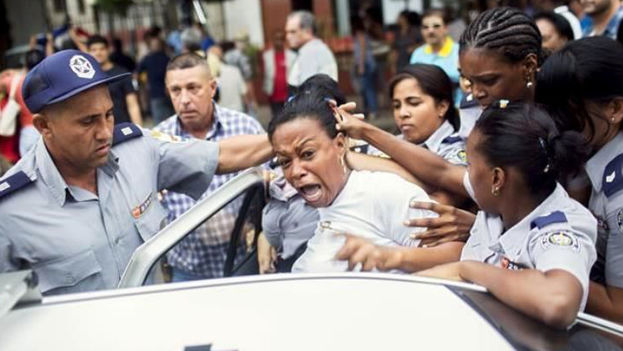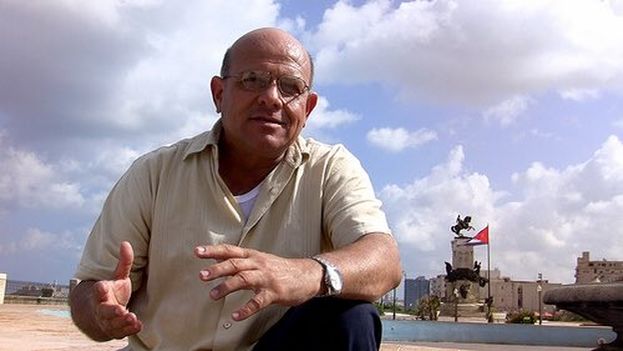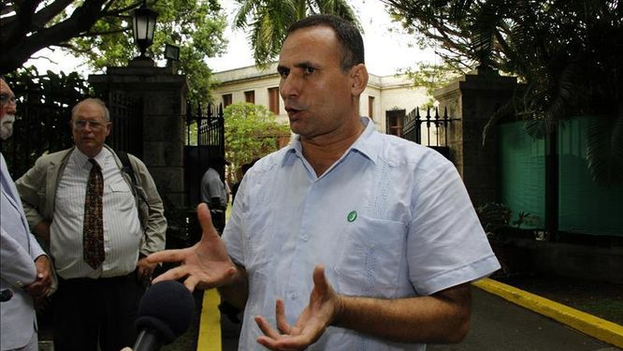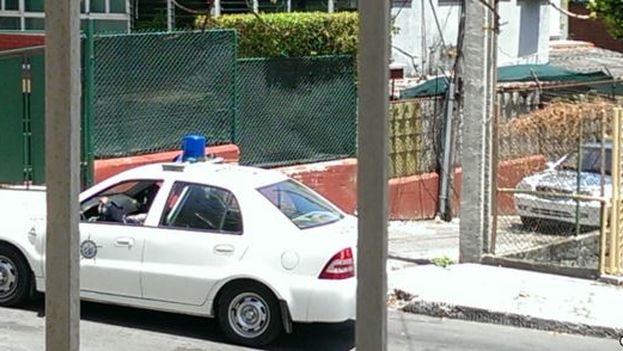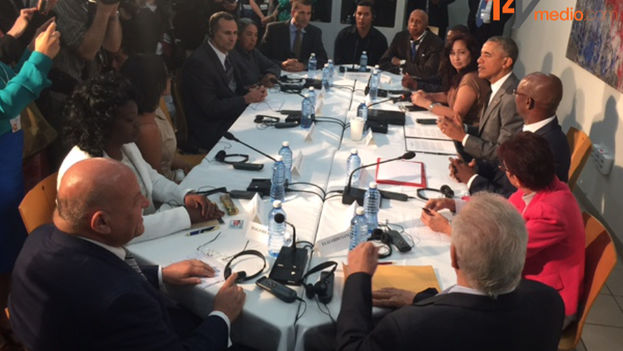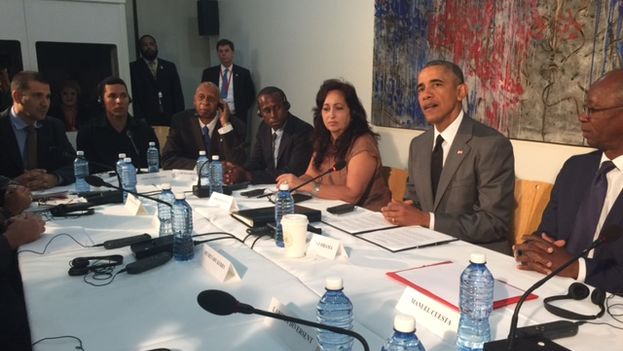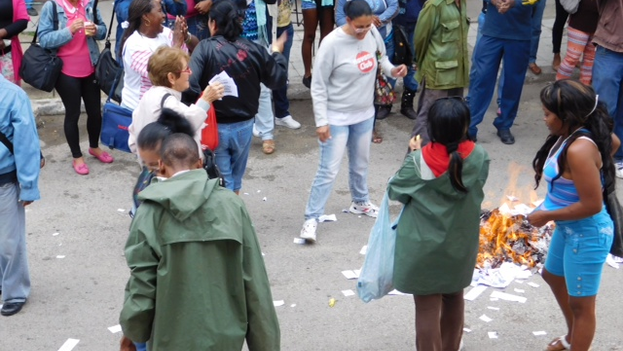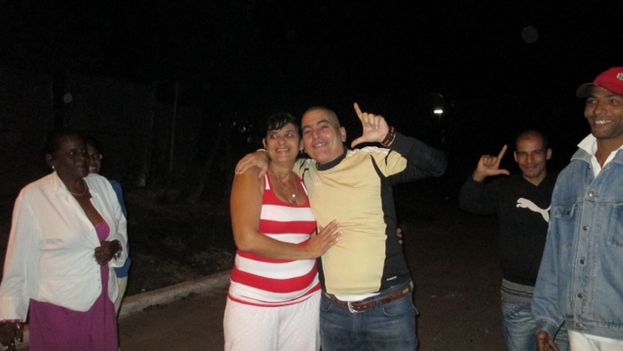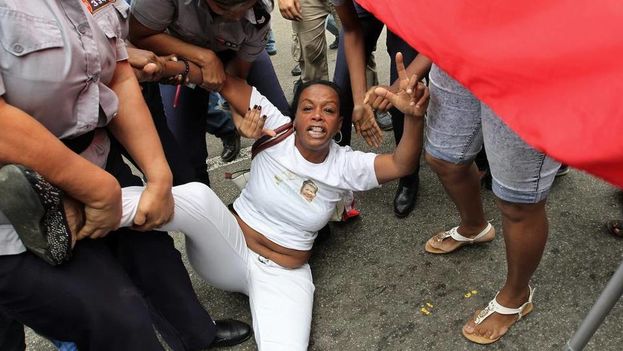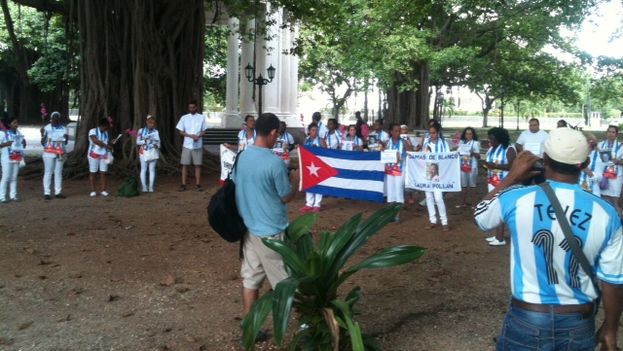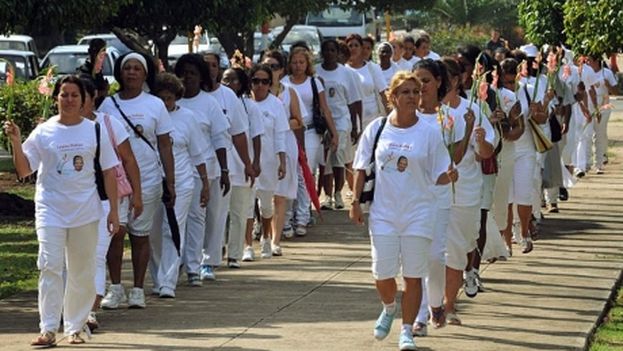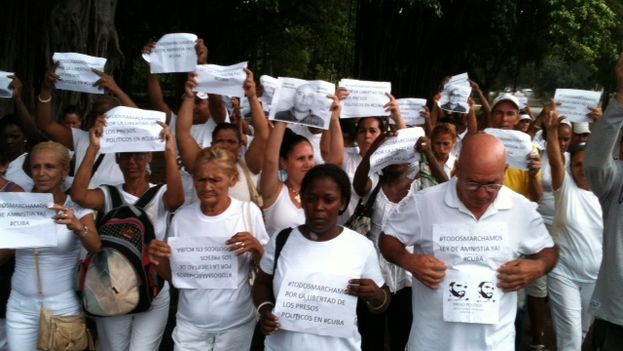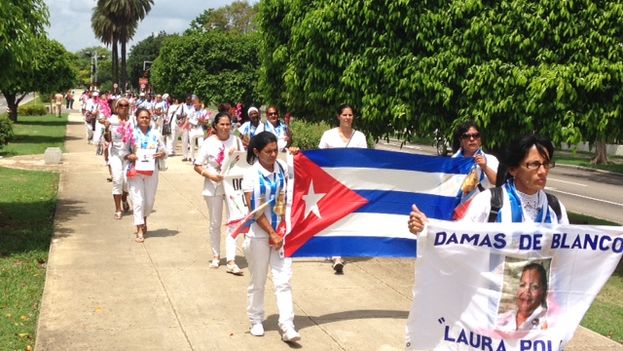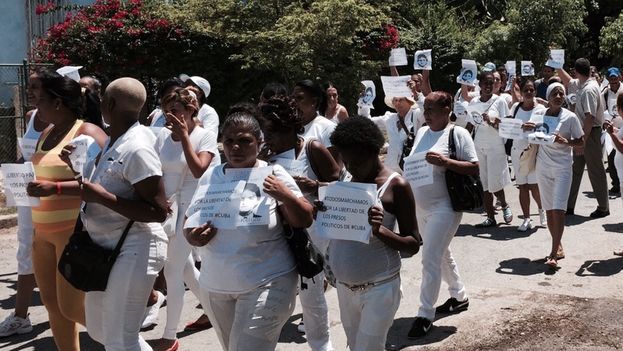
![]() 14ymedio, Ariel Hidalgo/Elizardo Sanchez SantaCruz, 1 January 2020 — After almost forty years of organized civic struggle of the dissident movement in Cuba, the survivors of the half dozen political prisoners who began that struggle in 1983 call for a dispassionate reflection on the general situation of the country and the opportunities of the present moment, without the anxiety of the spotlight and thinking only of the good of the Cuban people.
14ymedio, Ariel Hidalgo/Elizardo Sanchez SantaCruz, 1 January 2020 — After almost forty years of organized civic struggle of the dissident movement in Cuba, the survivors of the half dozen political prisoners who began that struggle in 1983 call for a dispassionate reflection on the general situation of the country and the opportunities of the present moment, without the anxiety of the spotlight and thinking only of the good of the Cuban people.
On Balance:
- The model established in Cuba since the 1960s of the last century has shown, by its results, its inefficiency in solving the fundamental problems of society. The very goals of achieving universal access to education and health care for the entire population were undermined by an irrational economy, by restricting productive stimuli and citizens’ aspirations for self-improvement, and by supporting a parasitic bureaucracy.
- It is not about the false dilemma between socialism and capitalism, since the actions of the Central Committee of the Hungarian Working People’s Party in 1955, the “Socialism with a human face” of Czechoslovakia in 1968, alternatives brutally frustrated by the Russian tanks, and the path of the self-governed Yugoslavia, these were options rejected by the Castro leadership. Even though the Soviet bloc had disappeared, Castro preferred to continue maintaining the model of state centralism that demonstrated its ineffectiveness in the Soviet Union itself with its implosion in 1991.
- It was Castro himself, the political leader who promoted the establishment of socialism in Cuba, who confessed before he died to a journalist from The Atlantic magazine that this model “no longer works, even for Cubans.”
- The economic restrictions of the United States on Cuba in response to the confiscations of American properties and later reinforced as an instrument of pressure on the Castro leadership has not only failed in its objectives, but has also increased the precariousness of the people and has only served to divert responsibility from that leadership for the dire consequences of its ineffectiveness and its internal blockade of the people.
- The denial of fundamental rights, such as free association and expression of ideas, gave rise in the 1980s to the birth of a peaceful current of opposition and human rights known as “internal dissidence,” which spread throughout the country and it has not been able to be silenced, much less exterminated, despite threats, intimidation, ostracism and imprisonment.
- However, this movement has failed to date to achieve the desired changes for the country. It has not been able to emerge from its social marginalization due to the general fear of the population of government repression and, above all, because many of these groups, influenced by opposition organizations from abroad in a different context, adopted the confrontational rhetoric in support of the politics of the besieged that distanced them from most of the people, and especially from critical intellectual and academic sectors that, in other ways, were seeking solutions to the national conflict.
- The deep economic crisis in the country, particularly the energy crisis, exacerbated the calamities of the population and its discontent, although much of the frustration is not yet openly manifested out of fear, but could explode en masse with serious irreparable consequences, which would not be healthy for anyone, neither for the leadership, nor for the dissidents, nor for the people.
- The regime can no longer ease internal tensions by resorting to large mass exoduses, such as Camarioca, Mariel and the rafters of ’94. All this is in the past after President Obama’s decree to return all refugees who arrived illegally, while for the population individual liberation through emigration is no longer so easy, which accentuates the urgency of an internal solution to the conflict.
- Cuba no longer has a secure and stable supplier of fuel, as the Soviet Union and later Venezuela used to be. The possible improvement of relations with a new Democratic government in the United States could mean new opportunities to put an end to that lack, but after the experience of the Obama Administration, it is very difficult for the new administration to take actions without concessions from the Cuban regime in the field of human rights.
- Opponents can no longer expect radical changes in Cuba, neither by a military intervention after the end of the Cold War, nor by expeditions on their own without sufficient armed resources or popular support, nor coups d’état based on effective intelligence or counterintelligence, nor by a social explosion that would only bring chaos and many deaths.
- The physical disappearance of the “historical leaders” for biological reasons will not bring positive changes, but will leave unscrupulous business mafias at the helm of state companies, with enough power to negotiate with drug cartels that seek safer routes for that traffic to the desirable North American market.
- The electoral result achieved by the regime for the approval of the current Constitution shows that, even without counting the absence of guarantees and the general opinion that many approved it out of fear, the figure provided by the government itself regarding the minority that expressed their disagreement is a sufficiently significant percentage as to be taken into account.
continue reading
Conclusions: what can be done?
- Cubans cannot count on factors other than themselves to solve their problems. The dissidents could find support from the international community in favor of their fight for human rights, while the leadership could find aid from allied countries to alleviate the oil shortage, but neither of the two contending groups will be able to definitively resolve their conflicts if it is not between them and the Cuban people.
- The regime-dissidence contest has long since fallen into a stalemate in which the former, with all its power, has not been able to liquidate the latter, and the latter has not been able to advance much further for a change in the system.
- That the Castro regime has not been able to end the dissident movement, as it did with all the armed opposition attempts, shows that the solution to the Cuban conflict cannot be resolved through violence and force, or through imprisonment ordered by that leadership, nor by the breaking of windows by potential protesters, but through peaceful solutions and putting confrontations aside.
- However, the present conditions are creating a favorable terrain so that both that dissidence and a reformist intelligentsia in the legal frameworks can continue advancing in their proposals. The possibilities opened up the internet and social networks have opened access for the population, not only to information, but also to the massive and instantaneous disclosure of both proposals and complaints. This became very clear recently in December 2020 by the number of people who came out, both to support the hunger strike of the San Isidro Movement for the release of rapper Denis Solís, and to join in the concentration of artists who requested a dialogue with the Ministry of Culture.
- It should be emphasized that in the cases cited, a factor that stimulated this popular involvement was the peaceful nature adopted in these protests, which denied the government accusations against the demonstrators of “mercenaries paid by the empire.” Dissidence will not be able to gain ground with these technological opportunities if it maintains unpopular rhetoric, such as supporting US economic restrictions on Cuba, particularly on travel and remittances. On the contrary, it must condemn all the blockades and restrictions that affect Cuban families economically, both those imposed by the United States Government and by the Cuban Government against the people in their struggle for subsistence.
- The Castro leadership should take note of the symptoms of popular support for those who peacefully request an end to the harassment of both artistic manifestations as well as the economic activities of independent citizens. This support is not only evident in the streets but even in the networks among many personalities who, until now, had supported the regime, and weigh what could be worse: whether to make the concessions that would end the tensions or deny them and militarize the cities with the probable consequence of a social explosion. Those who are inciting violence are not dissidents, or intellectuals, or artists, but the Government itself, by refusing to dialogue with the more moderate segments that only ask for a peaceful understanding and mutual respect.
- The leadership must free all prisoners of conscience and stop persecuting those who make use of their rights of free expression and association, and dissident organizations, must make it clear that they do not favor revenge against those who have perpetrated human rights violations, and advocate for a general amnesty that benefits both dissidents who face prison or other penalties and government elements who have committed abuses of power. This does not mean that the truth is not restored and responsibilities are assumed, as happened in South Africa under the Mandela presidency.
- The dissidence must build bridges with those Cubans who, although they have not broken with the regime, maintain critical or independent positions, and try to iron out rough spots and resentments with other compatriots who are offering their contributions for a better Cuba in other ways.
- The regime has the opportunity to achieve a change in the attitude of governments and international institutions that condemn it for human rights violations, changing its own position towards activists, ceasing to see them as enemies and valuing the usefulness of their work in detecting arbitrariness and abuses of power by some of their own officials that damage the image of the Government and generate discontent among the population. If they authorized the creation of a national committee of activists elected by the human rights groups themselves, who raised their complaints to the highest levels in exchange for their receiving due attention, the activists would not have to broadcast their complaints internationally, and the regime would receive the approval of the world community. Don’t kill the messenger.
- The Government should allow, in universities or convention centers, panels where representatives of the Government, critical intellectuals, reformists and dissidents discuss what changes could be implemented to get Cuba out of the crisis, without ideological dogmatism, but thinking pragmatically about the welfare of the population and the destiny of the homeland. We exhort all Cubans of good will, regardless of their political ideas and country of residence, to contribute to the joint mission of healing all the wounds of the great Cuban family and raising the national home, for the sake of a future where peace, fraternity and progress reign.
____________
COLLABORATE WITH OUR WORK: The 14ymedio team is committed to practicing serious journalism that reflects Cuba’s reality in all its depth. Thank you for joining us on this long journey. We invite you to continue supporting us by becoming a member of 14ymedio now. Together we can continue transforming journalism in Cuba.

